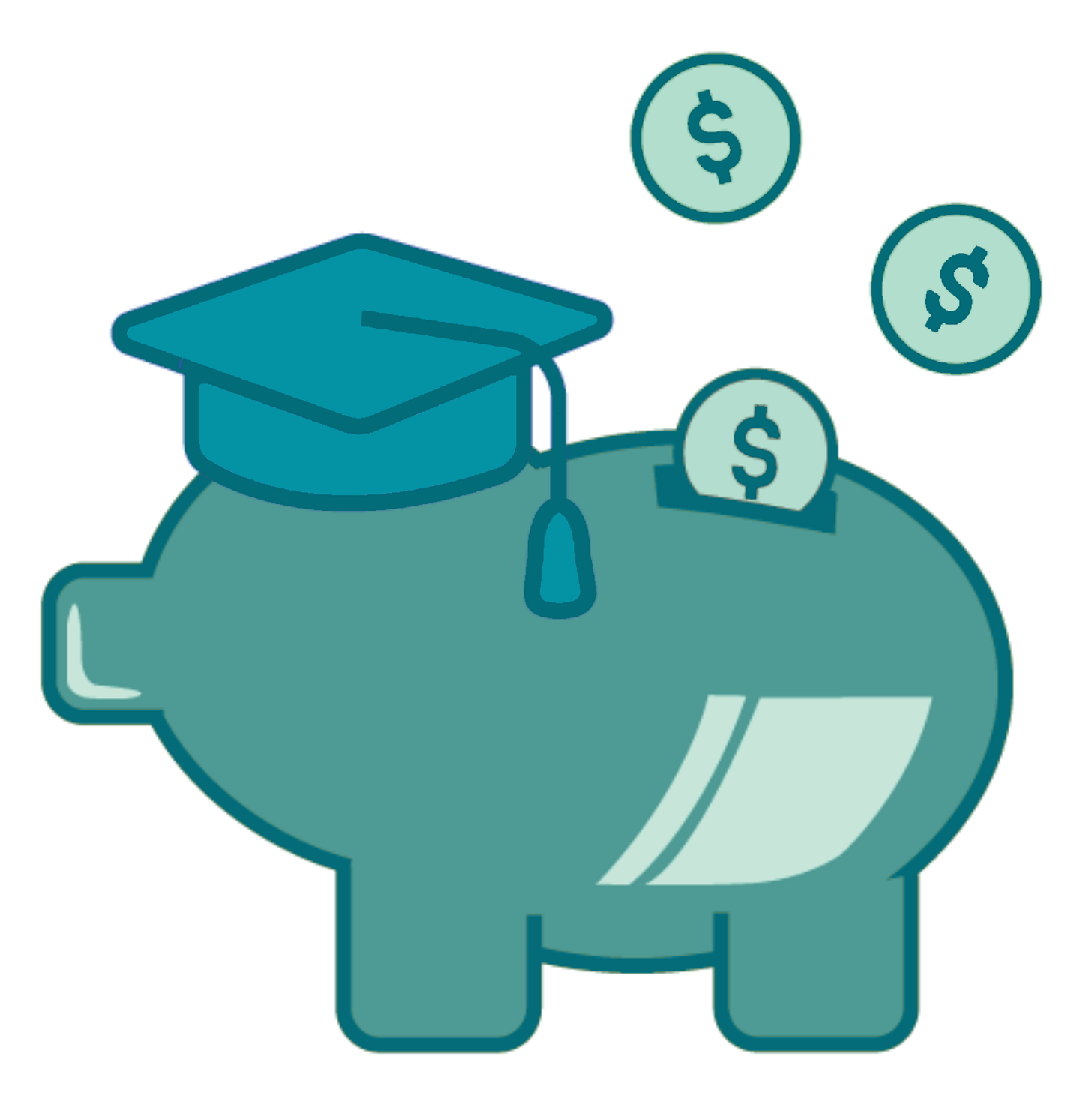The Finatical
Week of July 26th, 2021 - Student Loan Tips, German Human Right Laws, Europe's COVID Cases
FinaticTips - 3 Tips for Taking Out Student Loans
1 - Evaluate Repayment Options
Student loans are different for everyone and you will have a lot of options to choose from. Before deciding which plan, you need to first determine how you wish to pay off the loan. If you wish to have financial flexibility and do not want the loan to be a burden on you, choose a federal income-driven plan that allows you to easily pay off your loans. If you want to pay off the loan as quickly as possible, choose a plan with the shortest repayment term.
Here are the five types of Federal loans you can choose from:
1 - Direct Loan: The Federal Direct Loan program is better known as Stafford Loans. These are available to undergraduate and graduate students alike. Money for these loans comes directly from the federal government. Stafford Loans come in two types: Direct Subsidized Loans and Direct Unsubsidized Loans. The type helps determine your interest rate and maximum loan amount.
2- Direct Subsidized Loans: If your loan is subsidized, you won’t be responsible for making any payments until after you graduate. Under normal circumstances, the federal government pays the interest (rates set by federal law) on subsidized loans.
However, the CARES Act, passed in March 2020 in response to the coronavirus pandemic, zeroed out the rate on all federal student loans. On his first day in office, President Joe Biden extended the moratorium through Sept. 30, 2021.
Subsidized loans are reserved for students who can demonstrate financial hardship. Most go to students whose families’ annual income is less than $50,000.
If you’re an undergraduate, the maximum annual amount of a subsidized loan depends on your year in school. Here’s the breakdown for students who are dependents (subsidized maximum in parentheses):
First-year undergraduate, $5,500 ($3,500)
Second-year undergraduate, $6,500 ($4,500)
Third-year and beyond undergraduate, $7,500 ($5,500)
Aggregate loan maximums, $31,000 ($23,000)
Here’s the breakdown for students who are independent (subsidized maximum in parentheses):
First-year undergraduate, $9,500 ($3,500)
Second-year undergraduate, $10,500 ($4,500)
Third-year and beyond undergraduate, $12,500 ($5,500)
Aggregate loan maximums, $57,500 ($23,000)
3 - Direct Unsubsidized Loans: Outside of pandemic emergencies addressed by Congress and/or the president, unsubsidized loans require the borrower to pay the accumulated interest. But not until you graduate, drop out, or otherwise fail to qualify as a full-time student. Your annual Stafford Loan limit for unsubsidized loans ranges from $5,500 to $12,500, depending on your year in school and whether you are claimed as a dependent on someone’s tax return (see the bullet points above).
There are, however, limits on how much you can borrow. If you’re a graduate student, you have a higher annual limit of $20,500. In total, your undergraduate and graduate Stafford Loans cannot exceed $138,500. The highest limits are reserved for medical students: You may borrow up to $40,500 annually and $224,000 in total.
4- Plus Loans: PLUS loans are available for both parents and graduate students. Parent PLUS loans are for parents of dependent undergraduate students, and Grad PLUS loans are for graduate students themselves.
As with other education loans, PLUS loans are funded directly by the federal government. Unlike traditional student loans, they have no maximum amounts and can be used to cover education costs not covered by other financial aid.
5 - Direct Consolidation Loans: The Direct Consolidation loan is a fixed-interest loan with flexible options, based on your ability to repay. There is no fee to consolidate student loans, though you can do it only once. It could lower your monthly payments, but also could extend the amount of time needed to pay off the loan.
Direct Consolidation Loans cut down on the torture of having to remember multiple due dates for various amounts to a variety of lenders. It also should help reduce (or eliminate) late fees when you miss a payment.
The downside is, depending on the Direct Consolidation Loan program, you could end up stretching payments over a longer period and paying more in interest on the debt. Also, you could lose some of the benefits offered by the original loan, such as eligibility for loan forgiveness programs and interest rate discounts.
2 - Private vs Federal Loans
The major difference between federal student loans and private student loans is the cost and the use of credit scores in determining eligibility.
Undergraduate students applying for federal loans will not have to go through a credit check. Graduate students seeking federal loans must go through a credit check and could be denied loans if there is adverse information in their credit history.
Credit checks are the norm for public loans. A credit score of 640 or better is required and, depending on the terms and conditions, you may need a score much higher than that to be approved.
Some key differences:
Interest Rates: Interest rates on federal loans are fixed. The interest rates on private student loans can be variable or fixed and usually are higher.
Subsidised Loans: Undergraduate students who can demonstrate financial need could receive a federal subsidized loan, meaning the government pays the interest until you graduate. Private loans are never subsidized. You pay all the interest.
Forgiveness Programs: Federal loans offer flexible repayment options and loan forgiveness programs. Private loans have few repayment options, no loan forgiveness programs, and are unlikely to be included for amnesty in any federal legislation.
Repayment Term: Federal loans don’t have to be repaid until you graduate or drop below half-time status as a student. Many private loans ask for repayment while you’re still in school.
3 - Best Ways to Pay off your Loan
Take advantage of your grace period: Your grace period doesn’t obligate you to make any payments during your time in school. However, if you feel you are financially stable, you can start paying off some of the interest so that it doesn’t accrue later. There is absolutely no harm in paying some of it earlier and might even benefit you in the future.
Consolidating and refinancing your loan: If you are facing trouble and think the interest rate on your student loan is too high, you can always refinance and consolidate your student loans. In consolidation, with federal loans, you combine multiple loans together at an interest rate that reflects the average rate paid across all of your loans. In refinancing, you’ll apply for a new loan to replace your old one.
Automatic Payments: Late loan payments can affect your credit score and a bad credit score can hurt your chances of getting a student loan if you wish to go to graduate school. Therefore, scheduling your payments in advance at your bank can remove your burden and also help your score. You will no longer have to worry about repayment as long as you have funds in your bank account.
FinaticTrends - 2 Financial Trends
1 - New German Human Rights Laws
Germany has come up with new laws to restrict human rights violations and forced labour that goes on in major German companies. Failure to comply with the law will lead to large fines. The law is supposed to come into effect in 2023 and the impact on the global economy can be drastic as the law also restricts global suppliers of German companies from violating human rights in their factories, specifically China. China has hit the news several times already regarding human rights violations and the story doesn’t just end in Germany. The US Congress is considering legislation to ban imports from Xinjiang unless importers can demonstrate that products were not produced with forced labor. It can be predicted that China might retaliate by cutting imports from Germany. These events are likely to disrupt the global supply chain soon.
2 - Covid Cases on the Rise in Europe
Following the recent rise in Covid cases in the UK, more cases have been reported in other European countries such as Spain, Portugal, Greece, Cyprus, and The Netherlands. Fortunately, other nations such as France, Germany, Belgium, haven’t reported the same but they have cautioned against traveling to the infected countries. This is bad news for countries like Spain that thrive on tourist travel in the summer season and they will have to suffer some negative consequences. The Netherlands has put restrictions on their nightlife and Portugal has also put travel restrictions. The global economic outlook looks dismal in such circumstances but let’s hope for the best!
Financial Guidance
“Risk comes from not knowing what you’re doing.” — Warren Buffett
Risk is present in almost everything we do. You might be afraid to invest because it’s risky. But, if you understand how the stock market works, you will have more confidence to pursue financial freedom.
Money Fact
"Numismatics" is the official name for studying money facts.
Know all the money facts and impress others by having a “certified money expert” on your resume.
Featured Articles
We have created a separate newsletter just for featured publication articles. Every Monday and Friday, you will get 5 articles delivered straight to your inbox.
Subscribe below:








